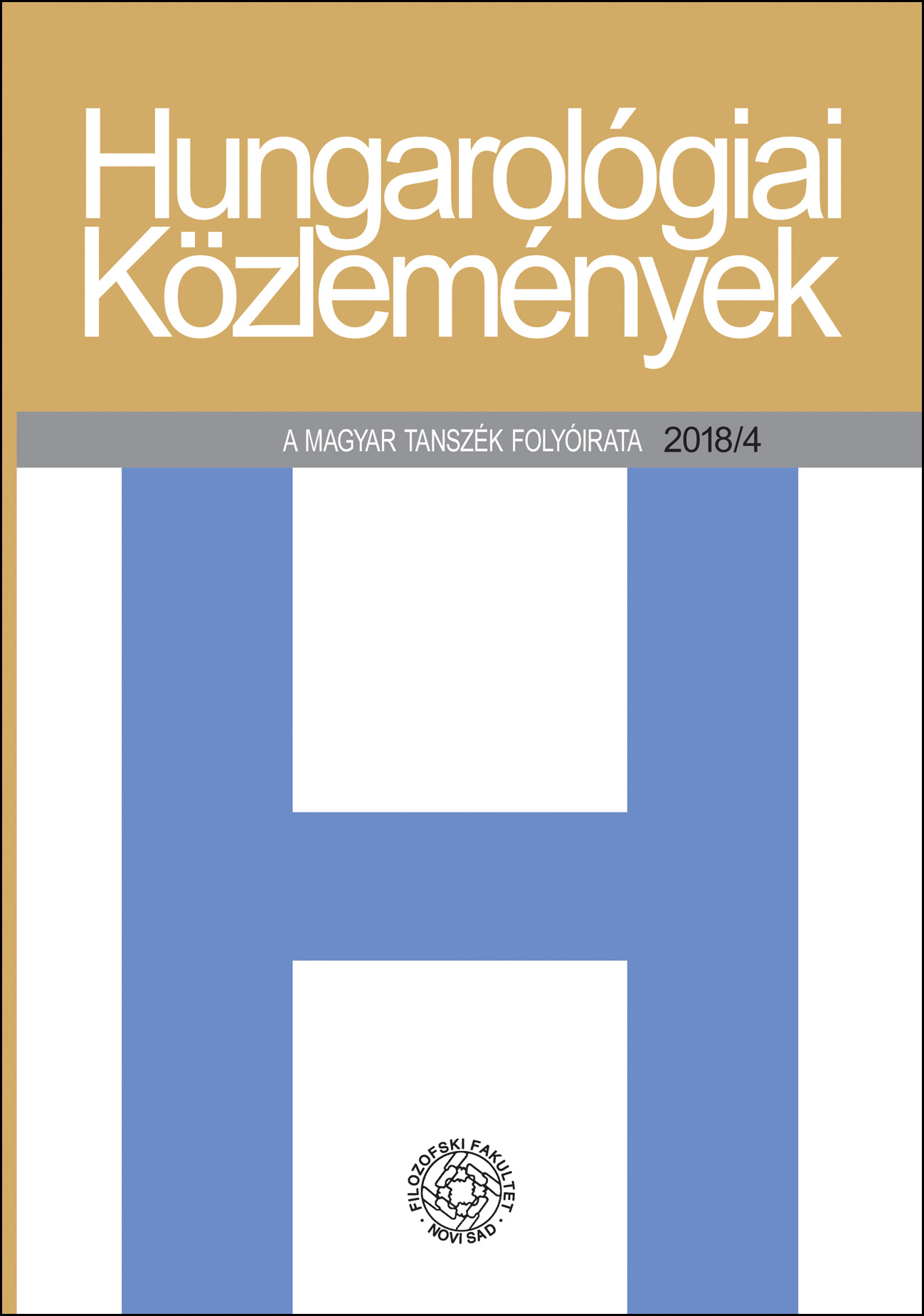VÁLTOZÓ RENESZÁNSZKÉPEK A KULTURÁLIS FORDULAT UTÁN
Absztrakt
A dolgozat egy készülő irodalomtörténeti mű, Az angol irodalom magyar története vállalkozás kapcsán reflektál a reneszánsz korszakot bevezető fejezet elméleti dilemmáira, és általános kérdéseket vet fel irodalomtörténettel, korszakolással, az irodalmi művek társadalmi beágyazottságával és azzal kapcsolatban, ahogy az irodalomtörténészek kérdésfelvetéseit, nézőpontját is meghatározza saját kulturális kontextusuk. A kiindulópontul szolgáló példákat a Szenczi Miklós által szerkesztett angol irodalomtörténet reneszánsszal kapcsolatos fejezetei és a kurrens angolszász újhistorista diskurzus vezető elméletíróinak munkái adják, különös tekintettel az újhistorizmus különböző megítélésére, prezentizmushoz való viszonyára, az irodalmi művek és kontextusuk közötti kapcsolat változó értelmezésére. Az érvelés felvetése szerint alapvetően három kontextus határozza meg az irodalomtudósok látásmódját: az intézményrendszer, az aktuálisan domináns elméleti irányok és az az igény, hogy irodalomtörténeti értelmezéseik saját társadalmuk látásmódját releváns módon tudják formálni. Az utóbbi két kontextus ugyan nehezen választható ketté, de működése hasonló ahhoz az ambivalens viszonyhoz, amely egy irodalmi mű és annak történeti, ideológiai környezetét jellemzi.
Hivatkozások
Cooper, Helen. 2010. Shakespeare and the Medieval World. London: Arden.
De Grazia, Margreta, 1997. „World Pictures, Modern Periods, and the Early Stage”. In A New History of Early English Drama, szerk. John D. Cox és David Scott Kastan. 7–24. New York: Columbia University Press.
Dollimore, Jonathan. 1984. Radical Tragedy. Chicago: The University of Chicago Press.
Drakakis, John–Fludernik, Monika. 2014. Introduction: Beyond New Historicism? Poetics Today 35 (4): 495–513.
Eagleton, Terry. 1986. William Shakespeare. Oxford: Blackwell.
Eagleton, Terry. 2010. On Evil. New Haven, Ct: Yale University Press.
Gajowski, Evelyn. 2010. Beyond historicism: presentism, subjectivity, politics. Literature Compass (7–8): 674–691.
Grady, Hugh. 1996. Shakespeare’s Universal Wolf: Studies in Early Modern Reification. Oxford: Clarendon Press.
Grady, Hugh–Hawkes, Terence szerk. 2007. Presentist Shakespeares. New York: Routledge.
Greenblatt, Stephen. 2010. Shakespeare’s Freedom. Chicago: University of Chicago Press.
Greenblatt, Stephen. 2018. Tyrant: Shakespeare on Politics. New York: W. W. Norton and Company.
Kiss Attila–Szőnyi György Endre szerk. 1998. Az újhistorizmus. Helikon 44 (1–2).
Petneházi Gábor. 2016. „A humanizmus halott? Beszélgetés Ács Pál irodalomtörténésszel”. Drót. http://drot.eu/article/humanizmus-halott-beszelgetes-acs-palirodalomtortenesszel (2016. dec. 22.)
Schandl Veronika. 2009. Socialist Shakespeare Productions in Kádár-Regime Hungary. Lewiston: Edvin Mellen Press.
Szenczi Miklós–Szobotka Tibor–Katona Anna szerk. 1972. Az angol irodalom története. Budapest: Gondolat.
Tillyard, Eustace M. W. 1943. The Elizabethan World Picture. London: Chatto and Windus.
Veeser, Aram H. 1991. Re-Membering a Deformed Past: (New) New Historicism. The Journal of the Midwest Modern Language Association 24 (1): 3–13.
White, Hayden.1973. Metahistory. Baltimore: The Johns Hopkins University Press.








